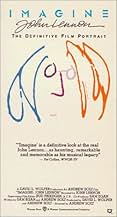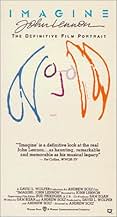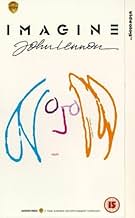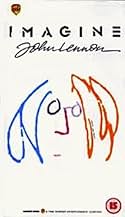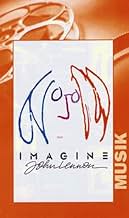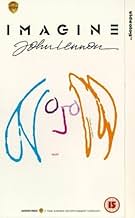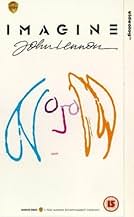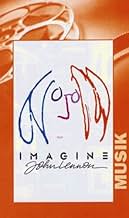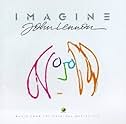Uno sguardo alla vita e all'eredità di questa iconica e controversa star della musica rock attraverso la sua raccolta personale di video e musica.Uno sguardo alla vita e all'eredità di questa iconica e controversa star della musica rock attraverso la sua raccolta personale di video e musica.Uno sguardo alla vita e all'eredità di questa iconica e controversa star della musica rock attraverso la sua raccolta personale di video e musica.
- Regia
- Sceneggiatura
- Star
- Self
- (filmato d'archivio)
- …
- Self
- (filmato d'archivio)
- Self
- (filmato d'archivio)
- Self
- (filmato d'archivio)
- Self
- (filmato d'archivio)
- Self
- (filmato d'archivio)
- Self
- (filmato d'archivio)
- Themselves
- (filmato d'archivio)
- Self
- (filmato d'archivio)
Recensioni in evidenza
It's full of home movies, news footage, videos all narrated by John Lennon himself (he recorded over 200 hours talking about his life and work). It's not a whitewash of him--it does point out he was a mean drunk and he is shown swearing and telling off Phil Spector in a recording studio when a song was not working out. It also chronicles his remark about the Beatles being "bigger than Jesus Christ" and totally ignores how horribly he treated his first wife Cynthia. But, aside from that footage, there is also interviews with Johns wives, his children and, basically, everyone who knew him (curiously, none of the Beatles were interviewed). He comes across as a very talented, peace-loving man--he has his dark moments but everybody does. His confrontations with Al Capp and Gloria Emerson are just fascinating.
I remember seeing this in a theatre in 1988 and most of the audience walked out crying. 15 years later the ending still packs a punch. It shows people crying at the peace rallies held after Lennon's death and ends with the "Imagine" video him and Yoko did. Also "In My Life" plays over the closing credits. A fascinating, very moving documentary of a great man. Recommended.
The documentary begins in 1971 at Tittenhurst Park in England, where John and Yoko lived and were then working on John's great IMAGINE album in a studio adjoining their home. Through John's own memories we then go backward in time to his birth, his rise to fame with the Beatles, the breakup of the group, his key meeting with Yoko Ono, all the exploits of John and Yoko through the late sixties and seventies, Lennon's retirement to raise his son Sean in 1975, and ultimately his happy comeback into the limelight in late 1980, when he was tragically assassinated and the entire world came to a screeching hault for millions.
For rabid Lennon fans there are very juicy segments included, such as John recording "How Do You Sleep" (his infamous swipe at Paul McCartney) with the assistance of George Harrison on slide guitar. We see the very candid and human sides of John from inside the glass of the recording studio as he swears at an engineer for not being able to send forward the proper pre-recorded verse of "Oh Yoko" so that Lennon can add his backing harmonies to it. A real treat is a lengthy segment from the 1969 "Bed-In" period where we get to see a visibly perturbed Lennon trying to maintain his peaceful stance while sparring with ultra-conservative artist Al Capp while the man continually attacks and insults John and Yoko right to their faces. Another key bit of business features Lennon storming into a newspaper office to confront a journalist who's just written a seething article denouncing the Lennons. A real gem of a clip concerns a scruffy hippie who's camped out at Lennon's garden overnight and tried to meet the famous ex-Beatle. With the cameras capturing their confrontation, John tries to explain to the far-out young man that he's just a regular guy who writes songs, some of which don't really mean anything special, and that he's only human. After this, John invites the hungry man into his home to give him breakfast.
John Lennon's appeal to the true fan was that he was very honest about who he was and what he believed in, and we could always relate to him and feel he was as real a person as we were. This film manages to capture the essence of John and it's a job very well done by director Andrew Solt, who had to plow through hundreds of hours of material, most of which must have been indispensable, to try and form a definitive representation of Lennon's whole life. If there is a tiny flaw in the film at all, it may be because John's life was so extraordinary that it's virtually impossible to get it all together in such a short space of running time; there is a sense of everything being squeezed together rather quickly (especially the Beatle years), where several hours would probably have been more adequate!
Yoko Ono has gotten such a bad rap over the decades, and that's a real shame, as it's so obvious through her own observations and actual on-film reactions here that she was as in love with John and as respectful of him as he was toward her. It should be understood and accepted that John wanted to be with Yoko and that she "saved him from a kind of death" (as he once said). It may be difficult for some to accept that Lennon drifted away from the idea of being "one of the boys" with the Beatles and getting married and devoting his life to his relationship with Yoko, but it's what made him feel happy and fulfilled. As John himself said in one of his very final interviews for PLAYBOY in 1980:
LENNON: "Listen, if somebody's gonna impress me, whether it be a Maharishi or a Janov or a Yoko, there comes a point when the emperor has no clothes. Because I do stupid things, I've done stupid things. I am naive but I'm also not stupid. So there comes a point where I will see. And nobody can pull the wool that long. So for all you folks out there who think that I'm having the wool pulled over my eyes, well, that's an insult to me. Not that you think less of Yoko, because that's your problem; what I think of her is what counts! But if you think you know me or you have some part of me because of the music I've made, and then you think I'm being controlled like a dog on a leash because I do things with her, then screw you, brother or sister... you don't know what's happening. I'm not here for you. I'm here for me and her and now the baby. Anybody who claims to have some interest in me as an individual artist or even as part of the Beatles has absolutely misunderstood everything I ever said if they can't see why I'm with Yoko." ***1/2 out of ****
Lo sapevi?
- QuizThe first cut of this movie ran 24 hours long.
- BlooperThe comment that Lennon makes about the future of the Beatles after deciding to stop touring is actually two comments edited together.
- Citazioni
[a homeless-looking young man is found wandering the grounds of Lennon's Tittenhurst Park estate]
John Lennon: Don't confuse the songs with your own life. I mean, they might have relevance to your own life, you know, but a lot of things do. And so we've met, you know? I'm just a guy, man, who writes songs.
Young Man: Yeah, I figured that if we met, I'd know, you know, just by meeting you.
John Lennon: But know what, man?
Young Man: That it all fits, you know?
John Lennon: Anything fits, you know? If you're tripping off on some trip, anything fits, you know?
Young Man: Like when you said "Boy, you're gonna carry that weight for a long time."
John Lennon: That's Paul saying that. But that belongs to all of us. He's singing about all of us.
Young Man: Remember that one, um, "You can radiate everything, or you can penetrate anywhere you go"?
John Lennon: Yeah, I was just having fun with words. It was literally a nonsense song, you know? I mean, Dylan does that. Anybody does that, you know? They just take words and you stick them together and see if they have any meaning. Some of them do. Some of them don't. See, that last album of mine was me coming out of my dream. You can last your whole life on that dream, you know? And then it's all over.
Young Man: You weren't thinking of anyone in particular when you were singing all that?
John Lennon: How could I be thinking of you?
Young Man: Well, I don't know, I don't care, me. But just all--it's all somebody.
John Lennon: I'm thinking about me, or at best, Yoko, if it's a love song. I'm saying, you know, "I had a good shit today" and "this is what I thought this morning" and, uh, you know?" And--or, "I love you, Yoko," or whatever. I'm singing about me and my life, you know? And if it's relevant for other people's lives, that's all right.
[pause]
John Lennon: Are you hungry? Hmm?
Young Man: [nods] Yeah.
John Lennon: Let's give him something to eat.
[John leads the young man inside]
- ConnessioniFeatured in Geraldo: Digging the Dirt on the Dead (1988)
- Colonne sonoreA Day in the Life
Written by John Lennon and Paul McCartney
Published by SBK Blackwood Music Inc.
under license from ATV Music (Maclen)
I più visti
- How long is Imagine: John Lennon?Powered by Alexa
Dettagli
Botteghino
- Lordo Stati Uniti e Canada
- 3.753.977 USD
- Fine settimana di apertura Stati Uniti e Canada
- 1.412.213 USD
- 10 ott 1988
- Lordo in tutto il mondo
- 3.754.273 USD
Contribuisci a questa pagina



